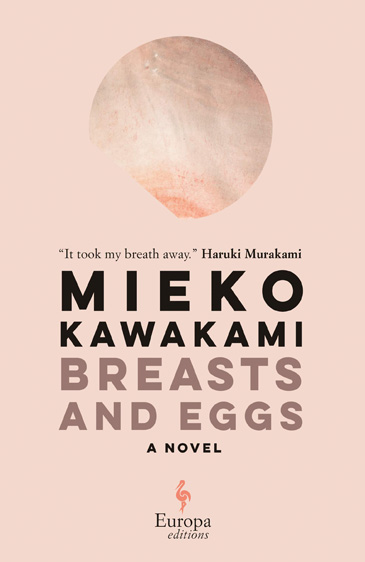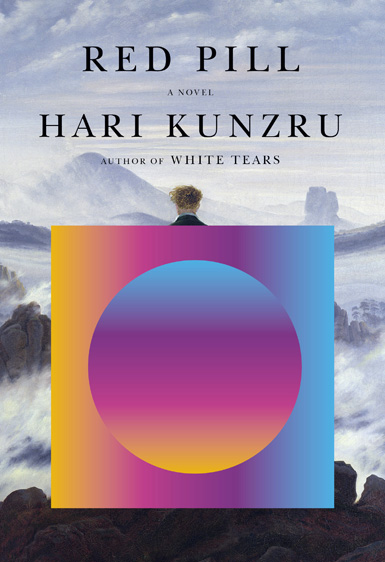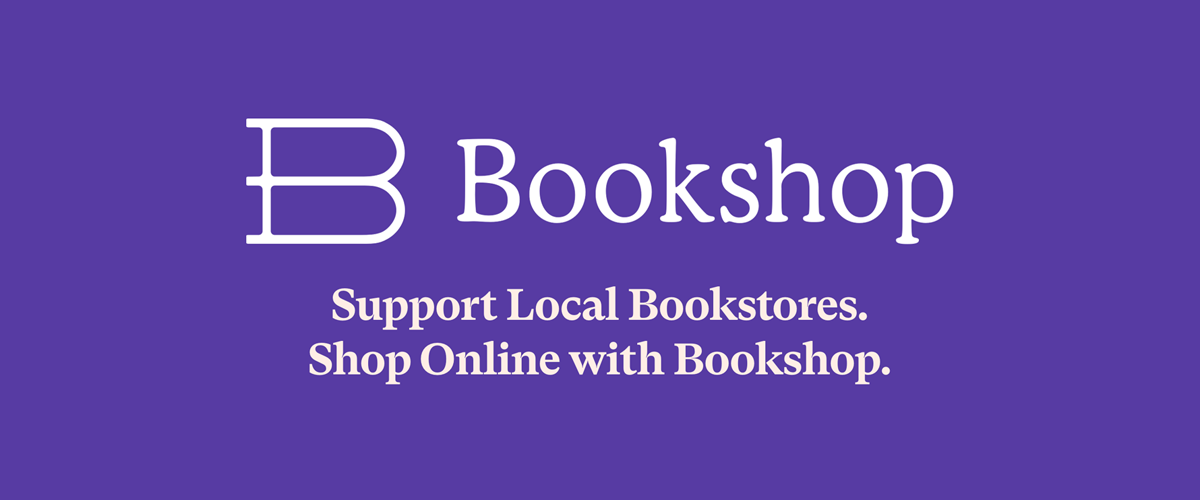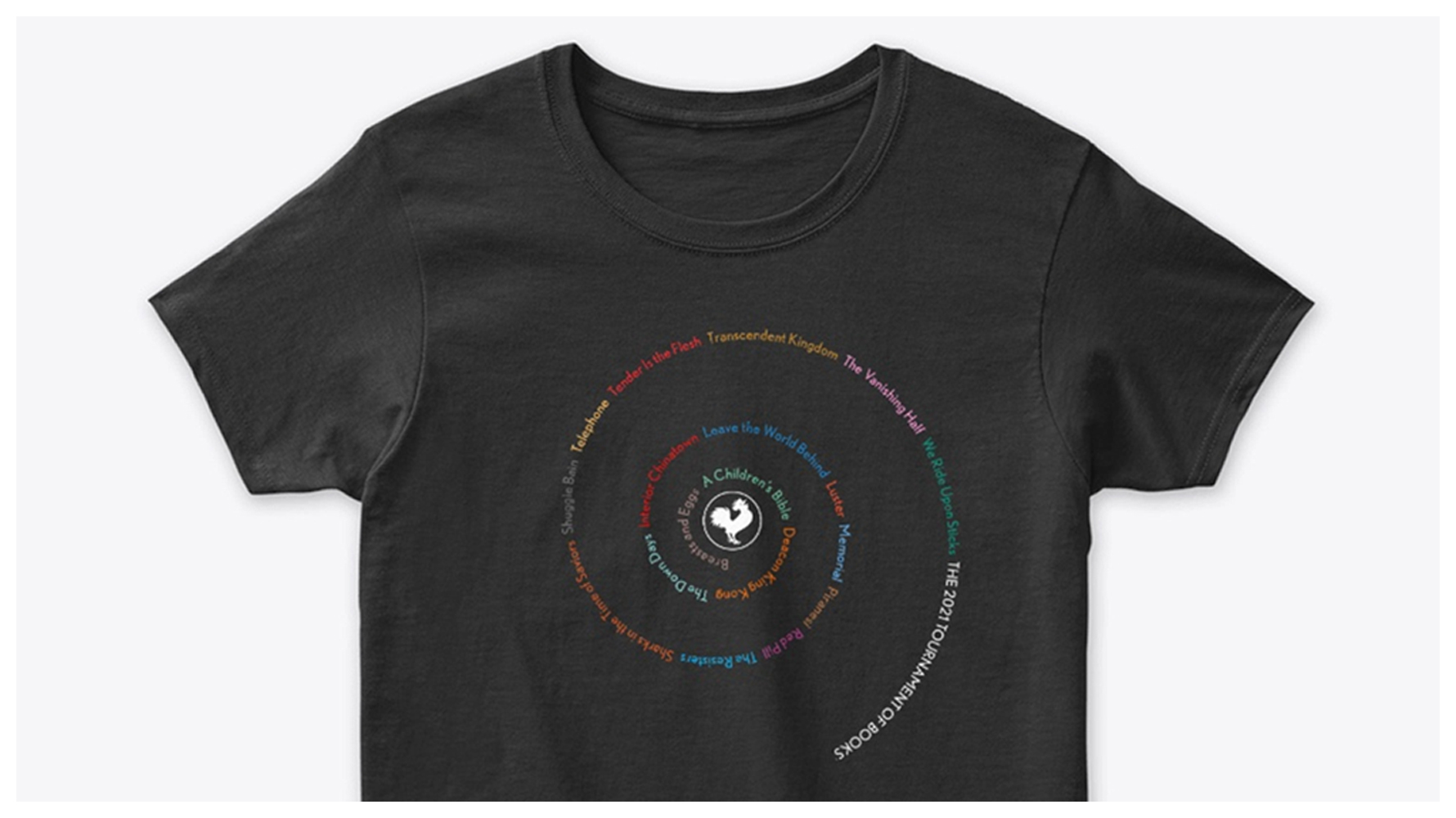-
March 26, 2021
Semifinals
-
Mieko Kawakami
3Breasts and Eggs
v.
3Red PillHari Kunzru
-
Judged by
Grace Perry
Do you remember the first time you discussed childbirth preferences on a Tinder date? I do. It was 2014, at some bar on Flatbush. I was 24. She wore a black shirt that said ISN’T IT ICONIC? in large, white blocky letters. And frankly, it was iconic of her. She asked me if I wanted to carry a child (not with her, just in general), and I said I hadn’t really thought about it. She told me she didn’t want to get married, or necessarily raise a child, but she craved feeling a human grow inside her belly, and all the phenomenal bodily changes the process entails. I said, “Hm, I actually don’t feel that way at all.” We kept seeing each other for about a month or so, and never had a child together.
So, then: What does it mean to be a woman? What does it mean to be a person with breasts and eggs? How do we define parenthood? These questions are Breasts and Eggs’s primary concern. We follow Natsuko through extensive, one-on-one conversations with friends and acquaintances—her older sister, her young niece, her editor, her novelist peer, a crush she discovered on the internet—who each fumbles through their own takes on womanhood, motherhood, and reproduction. Each character’s answer varies, from Natsuko’s tween niece Midoriko expressing abject horror at her own pubescence (“It feels like I’m trapped inside my body. It decides when I get hungry and when I’ll get my period. From birth to death, you just have to keep eating and making money just to stay alive.”) to Makiko, Nasuko’s sister, who finds the act of bringing a person into the world an act of egoism and violence. Whatever answer you have for those questions, one of the characters in Breasts and Eggs probably does, too.
I love these kinds of conversations. They’re questions queer and trans people ask all the time. Not always on Tinder dates, but still: When we come out, we accept that our family structure won’t look like the American nuclear family. We consider nontraditional setups (what if our kid knows our friend Dave was the donor?), and guesstimate the consequences of relatively unusual family structures. We’re used to considering adoption versus insemination versus childlessness. I was surprised, then, that a novel about the nature of reproduction had absolutely zero queer characters. “Lesbians” are mentioned vaguely, as if the characters have heard of them but aren’t totally convinced of their existence, like narwhals. There’s one trans man in the book (called “The Tomboy”), whose nude body shocks the cis bathers; he has no lines. It doesn’t feel great to read.
Breasts and Eggs and Red Pill don’t have much in common, except for one of my least favorite tropes: They’re both novels about writers. C’mon, guys! Some imagination here! Bravely, I got over that/myself and in the end enjoyed both books. The most excruciating part of Red Pill, for me, was when Anton shows up at the institute posing as a history professor, asking to tour the old Nazi bunker on the property. After outing himself to the academics as an alt-right white supremacist, he’s promptly ejected, to the narrator’s humiliation. As he leaves, Anton says this:
Anton giggled at them and turned to me. “You know what the best part is? I’m going to be living rent free in your head from now on. You’re going to think about me all the fucking time.”
There’s a full range of Note Books and related stationery products at fieldnotesbrand.com. Field Notes is proud to once again be a sponsor of the Tournament of Books.
That’s how you do it. That’s how you troll a lib beta cuck so hard his brain breaks. This guy is the absolute worst, and their interactions prompt a psychotic break in the writer. The narrator was teed up to snap, and yet, he immediately believes he’s in a cosmic battle with Anton—of truth versus lies, meaning versus futility, progressivism versus nihilism—which leads him to Paris, then Scotland, and eventually to an Upper East Side treatment facility.
For all its darkness, Red Pill is weirdly funny. I inhaled it. But I came out of it wondering: Wait, what was that? It’s unclear whether Red Pill is a book primarily about politics or mental illness. I guess it doesn’t have to be one or the other, but still. It’s without a doubt a chance to peer at the underbelly of the alt-right—Kunzru has written extensively on 4chan and the like. But it’s undoubtedly a book about a man splintering from reality, for reasons much deeper than encountering a MAGA troll at a fancy party. The narrator’s descent into disassociation is far more compelling than the forces that prompted said descent.
Red Pill and Breasts and Eggs are both books about obsessive characters grappling with their own unraveling, on vastly different levels. But where Red Pill deals with the grandiose, philosophical queries of the age of internet fascism—What is truth? What is knowledge? Is anything real?—Breasts and Eggs’s narrative undoing stems from the age-old reality of womanhood. For Red Pill, obsession means demanding a TV producer explain his 18th-century French philosophy references on the show. In Breasts and Eggs, it means following your crush’s ex-girlfriend down a dark street, just to keep looking at her. The narration in Red Pill reaches its most fractured and unreliable as the writer travels to a Scottish isle to fight Anton to the death; for Natsuko, it’s childbirth.
Between those two books, it depends on which kind of rabbit hole you’d prefer. And perhaps it’s because I’m a blue-pilling lib beta cuck whose brain Anton would like to break, but I prefer the rabbit hole of womanhood.
While queer people, by virtue of same-sex coupling, are forced to refleect on whether they want a child, whether they want to carry that child, whether they need that child to look like them—straight people aren’t. By Breasts and Eggs’s view (and mine now) liberation means straight women should be asking themselves those questions, too. Queer women aren’t the only kinds of women who have opinions about when and how and why and if they’d like to have and raise children; we’re just the ones without an assumed path towards family-making.
While it’s true that my critique of this book, like most things, is, “There aren’t enough gay people in this”—and I stand by that!—Breasts and Eggs is ultimately not about what it means to be a woman, but what it means to be a straight, cis woman. And you know what? Straight, cis women are allowed to have nice things, too.
Match Commentary
By Page Berger & Rosecrans Baldwin
Rosecrans Baldwin: Hello, everybody. For today’s match we’re spotlighting another bookseller in the commentary booth, Page Berger, and I am super pleased to say that Page works at Connecticut’s Barrett Bookstore, a terrific independent shop that I was lucky enough to visit pretty much every week as a child and teenager. Page, will you introduce yourself and the store a little bit?
Page Berger: Hi, Rosecrans! So thrilled and humbled to be a part of the ToB this year. Among various pursuits, I’m the marketing director at Barrett Bookstore in Darien, Conn. It’s a suburban indie in a supportive community, filled with just about every genre you can imagine, plus a robust children’s section. After working for many years in the education and nonprofit sectors, I took what appeared to some to be a left turn into bookselling, but really it was something—as a Bread Loaf School of English alumna and lifelong obsessive reader—that I’ve been preparing for my entire life. It’s a total dream to be a part of this luminous group of literary lovers. Thanks for having me.
Rosecrans: How do you think of yourself as a reader?
Page: I’m generally drawn to literary fiction, but, you know, I find myself getting more flexible as I get older. Especially over the past year—the pandemic really rocked my reading habits. After initial paralysis and basic inability to read much of anything, I started exploring all sorts of genres I hadn’t focused on in recent years including mysteries, memoirs, romance, and history. I love snuggling up with a good cookbook; my version of binging the Food Network, I suppose. But literary fiction is generally my jam.
As of late I’ve also been trying to hold myself accountable for books that feel more difficult; we’re at a difficult moment in this country and I feel a strong responsibility to be reading not only for pleasure but education. My book club is a bit of a social gabfest, so I’ve created smaller pockets of literary sessions with people who I know are really interested in reading history, challenging works, and generally pushing outside of what feels comfortable.
Finally and most importantly, I also have kids so I’m exposed to all sorts of gorgeous stuff happening in the picture and middle-grade realm. Working in a bookstore that’s based in the community where I live, people know me and my family, and they expect me to be up on what’s happening in the children’s section. I’m trying to make a more concerted effort on that front.
I know you’re about to publish Everything Now in just a couple of months. Do you have time to read for pleasure these days?
Rosecrans: I do! Or, I make time for it. (We’re already scouting for ToB 2022.) I spent the last four years mostly reading for research—this new book is a weird work of creative nonfiction about Greater Los Angeles—so it’s been really fun to read more broadly. E.g., I just finished Heather McGee’s The Sum of Us, a total knockout.
Regarding today’s judgment, I like this line from the judge: “Between those two books, it depends on which kind of rabbit hole you’d prefer.” Meaning, I think, that some days a reader is up for speculative fiction, some days a cozy mystery. Or, it’s not about genre, but a style of narration or storytelling, the ways a book goes about its investigation.
Page: Yes, two things on this point: 1) I love a rabbit hole—isn’t that the point of reading, to get lost in a deep, dark cavern? And 2) I find myself, especially during this phase in my life, having less tolerance for reading that feels too familiar. There are so many amazing books out there in the world that I increasingly find myself craving books that will completely transport me to a world I know nothing about. Getting lost in a book—whether you understand what is happening or not—is one of life’s greatest pleasures.
Rosecrans: For sure.
Page: I have a friend who is a nutritionist and talks a lot about “intuitive eating.” I’m no professional, but as far as I understand it, if you’re following intuitive eating you listen closely to your body and try to ensure you’re giving it the food that makes it run at an optimal level. I feel the same way about books. I think a lot about the input, what’s heading into my brain, how it can push and stretch and take you to a place you’ve never been.
Rosecrans: “Intuitive reading” sounds very much like my program.
Page: Complete immersion is ideal. I’m not a snob about it. I’ll go down all sorts of rabbit holes but I’m particularly drawn to worlds that confuse me and make me question what the heck is going on. I think Haruki Murakami, Sayaka Murata, Akwaeke Emezi, and Emily St. John Mandel all do this extremely well. Oh, and Lucy Ellmann—Ducks, Newburyport destroyed me. Talk about a rabbit hole!
Rosecrans: I’ll be honest, Ducks, Newburyport is a hole that I did not finish… descending? In any case. Today’s judgment: what do you think?
Page: I loved reading Judge Perry’s take on both books. I know for some people that reading reviews before offering their own thoughts is a bit of a “cheat” that might cloud one’s views of their own personal interpretation, but I often, as I did here, have the complete opposite experience. Reading the judge’s comments helped to illuminate pieces I was struggling with and highlight lines in the story I completely missed on the first pass. I read Breasts and Eggs when it came out (because frankly I’ll read anything Europa publishes, really; I don’t know if I’m allowed to be partial to a publisher, and obviously as a bookseller I champion books from a wide berth of presses, but boy do I have a soft spot for the consistently interesting work they release into the world) and was completely transfixed.
Rosecrans: We’re big Europa fans over here, too.
Page: The plot, albeit a bit messy with timelines and characters, felt both totally familiar and completely foreign. I often felt, as Natsuko describes late in the book, “confused about what happened, overlooked in all the chaos, unable to get up from where I was.” Judge Perry’s point about bodies and queer characters is well taken, and frankly in a book that struggles with bodies, identity, and life choices, I think the narrative could only have been strengthened with some more sexual and gender identity diversity.
Rosecrans: Have you read Red Pill?
Page: Red Pill piqued my interest after I heard Kunzru in conversation with Pamela Paul on the New York Times Book Review podcast last year. I hadn’t read Kunzru before but I immediately added it to my ever-growing TBR list. I began the book with a bit of trepidation— does that ever happen to you—begging a book to please not disappoint you?
Rosecrans: Lol. Every week!
Page: That’s the way I felt diving into Red Pill, like, please don’t let me down, I want so badly for this to be good. The opening fooled me into thinking we might end up in a Shining-esque situation, completely immersed in the narrator’s brain, but Red Pill pulled back and gave us enough third-party input that I didn’t feel like we were going down with the ship. I will admit that my emotional state while reading this book was worried. Totally stressed. I agree with the judge that one needs to be careful with a bit of writerly navel-gazing in these works, but can you imagine you sign up for a residency where you anticipate solitude and time to focus, only to find out you will be living in what appears to be a surveillance state? No, thank you. Judge Perry nailed it: “The narrator’s descent into disassociation is far more compelling than the forces that prompted said descent.” The book is at its best when the narrator is questioning all external forces, trying to figure out what’s at play.
Rosecrans: I think that’s right, or at least it rhymes with my reaction. I personally found the interior confusion more compelling, all the material around mental illness, compulsion, disgust.
Page: The other thing that really intrigues me about both books, which were clearly written well before the pandemic, is how both created a prison-of-the-mind situation that feels familiar in this time of isolation.
Rosecrans: Can you say more about that?
Page: Both protagonists become completely obsessed and somewhat singularly focused on an issue that they have little control over. Sounds like something many of us has gotten a lot more familiar with over the course of the past twelve months.
Rosecrans: Sure, that’s a great point. Well, that leads me to this: How has bookselling at Barrett been during the last year?
Page: [Inserts virtual laughter]
Rosecrans: [Echoes virtual laughter]
Page: Incredibly different. For the first few months, we were closed to the public for in-store interaction, but we quickly set up a system for curbside pickup and contactless delivery. Selling virtually is something we weren’t experts in and we had to get really good at it, really fast. On the positive side it forced our hand and we worked hard to upgrade our website, create new processes for getting books out to folks, host events in a virtual space, and share more via our social channels about what was happening in the store. These changes will certainly serve us well in the long term.
Rosecrans: That seems to be true for a lot of stores, based on what we’re hearing.
Page: It’s funny because, writing this, it strikes me that written interviews are the ultimate virtual event. How are you thinking about your upcoming book tour in terms of what’s changed?
Rosecrans: It’s happening this summer, so it’s still mostly virtual—Zooming for readings and book clubs, and some podcast appearances—and that’s great. But I’ll definitely miss getting to meet readers in person, not to mention attend all the great book fairs that normally take place in the fall. (It’s always a special treat to talk to people who show up wearing their Rooster T-shirts.) But hey, right now I’ll take what I can get!
And if you’ll all forgive a quick promotional shoutout, if anybody wants to stay up-to-date on my book stuff, catch me on Substack or Instagram. Even better, grab a preorder!
Again, many thanks to Page for joining us today. Finally, let’s check in with our own Kevin Guilfoile as to the final Zombie results.
Kevin Guilfoile: So, Red Pill is finally going to have to face reality—its pursuit of the Rooster is done. But that means next week’s Zombie Round is set! On Monday, Interior Chinatown will take on a newly resurrected Piranesi, and on Tuesday, Breasts and Eggs will meet the second coming of The Vanishing Half.
I’m not certain, and I’m far too lazy to do the confirmation legwork, but this might be the first time in the 17-year history of the Tournament of Books that there were zero changes in the Zombie standings from the start of the Tournament to today—i.e., where the two most popular novels in our pre-Tournament Zombie poll were both knocked out in their opening matches. I’m also excited to let you know that some more of our favorite booksellers will be offering commentary during the Zombie Round, and John and I will return to wrap things up in Wednesday’s championship match.
Rosecrans: Thanks, Kevin! Wishing everybody a restful weekend as we prepare for two days of the (gratefully?) undead, not to mention the championship on Wednesday to determine who takes home the Rooster this year. Cue drums.
New 2021 Tournament of Books merch is now available at the TMN Store. As a reminder, Sustaining Members receive 50 percent off everything in our store. To find out why we’re asking for your support and how you can become a Sustaining Member, please visit our Membership page. Thank you.
Welcome to the Commentariat
Population: You
To keep our comments section as inclusive as possible for the book-loving public, please follow the guidelines below. We reserve the right to delete inappropriate or abusive comments, such as ad hominem attacks. We ban users who repeatedly post inappropriate comments.
- Criticize ideas, not people. Divisiveness can be a result of debates over things we truly care about; err on the side of being generous. Let’s talk and debate and gnash our book-chewing teeth with love and respect for the Rooster community, judges, authors, commentators, and commenters alike.
- If you’re uninterested in a line of discussion from an individual user, you can privately block them within Disqus to hide their comments (though they’ll still see your posts).
- While it’s not required, you can use the Disqus <spoiler> tag to hide book details that may spoil the reading experience for others, e.g., “<spoiler>Dumbledore dies.<spoiler>”
- We all feel passionately about fiction, but “you’re an idiot if you loved/hated this book that I hated/loved” isn't an argument—it’s just rude. Take a breath.




